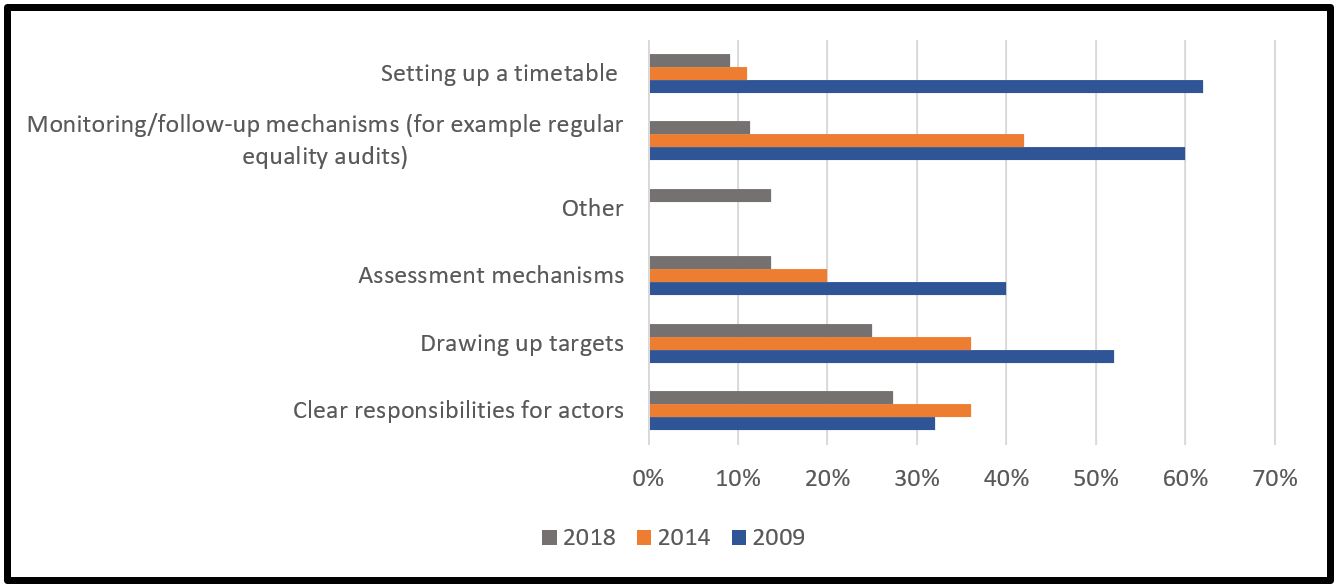
ETUCE Research: It is time to bring gender equality into social dialogue!
The new ETUCE study Education trade unions addressing gender equality through social dialogue reveals that gender equality issues are still not a priority in collective bargaining and social dialogue with education authorities and employers. The researchers recommend that trade unions exploit the potential of social dialogue further to enhance gender equality in the education sector.
The new ETUCE study Education trade unions addressing gender equality through social dialogue reveals that gender equality issues are still not a priority in collective bargaining and social dialogue with education authorities and employers. The researchers recommend that trade unions exploit the potential of social dialogue further to enhance gender equality in the education sector.
The study was conducted as part of the ETUCE project‘Social dialogue and gender equality: Empowering education trade unions to address gender equality in the teaching profession through social dialogue’ (2018-2019). The results are based on an online survey among ETUCE member organisations, combined with a review of existing literature and data on the topic. In advance of the project’s closing conference, taking place in Bucharest on 16-17 September, the research report is released together alongside some practical tools and campaign materials.
Gender stereotypes, challenges for work-life balance and the underrepresentation of women in leadership and decision-making positions are still acute issues faced by teachers and education trade unions
It goes without saying that the education system and teachers have a vital role in dismantling sexist stereotypes and promoting gender equality. But what about gender equality in the teaching profession itself? The situation is much more complex than the lazy stereotype that all primary school teachers are women. The research shows that gender stereotypes continue to persist in relation to women’s and men’s roles in the society, caring responsibilities, and labour market. This fuels challenges for work-life balance, gender pay and pension gaps, and both horizontal and vertical segregation in the teaching profession.
Education trade unions lack the financial and organisational resources to focus profoundly on gender equality issues
Despite the fact that teaching is a highly gendered profession, only 60% of education trade unions have a department or individuals dealing specifically with gender equality issues. Comparison of the trends between the 2009, 2014 and 2018 surveys shows that the importance and use of various mechanisms for implementing gender equality policies in the education trade unions have been decreasing across the decade, across all types of implementation mechanisms included in the surveys. Furthermore, only 40% of trade unions indicated that internal gender equality policies are in place.
Proportion of responding trade unions using various mechanisms to promote gender equality
Trade unions often stand alone in the fight for gender equality
The solutions to these problems are good for everyone. Better work-life balance, the right to disconnect and fair access to professional development for part-time workers would improve life for all education personnel, but particularly help women commit to their career and reach leadership positions. However, trade unions do more than half of their gender equality work without support and cooperation from employers or government authorities. Only 11% of their actions for gender equality take the form of binding collective bargaining agreements. Employers and governments need to recognise that issues relevant to gender equality are fruitful territory for social dialogue and collective negotiation.
Education trade unions also find it useful to share good practices and tools with each other, so this research report is accompanied by an online database of good practices. Education trade unions can use this as a source of inspiration and as a practical manual of tools and arguments with proven success in education trade unions and in the education sector.
Practical Information
Next week’s conference 'Education Trade Unions Addressing Gender Equality Through Social Dialogue' will explore this report in more detail and set out an updated Action Plan to guide ETUCE’s work on gender equality in the coming years. Follow us on Twitter to get updates from the event.
Click here to read the whole report or check out some key findings in the executive summary (also in French and Russian). ETUCE Member Organisations are invited to share the report and the video Education Trade Unions for the Teaching Profession: Let’s Talk About Gender Equality!